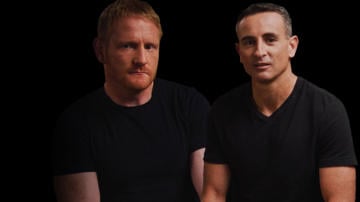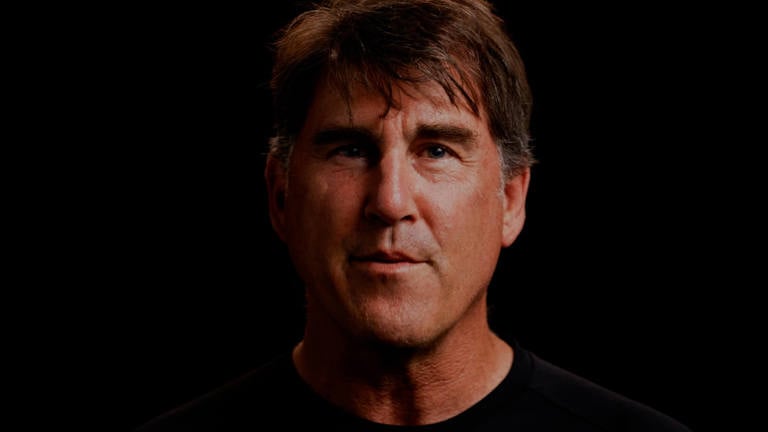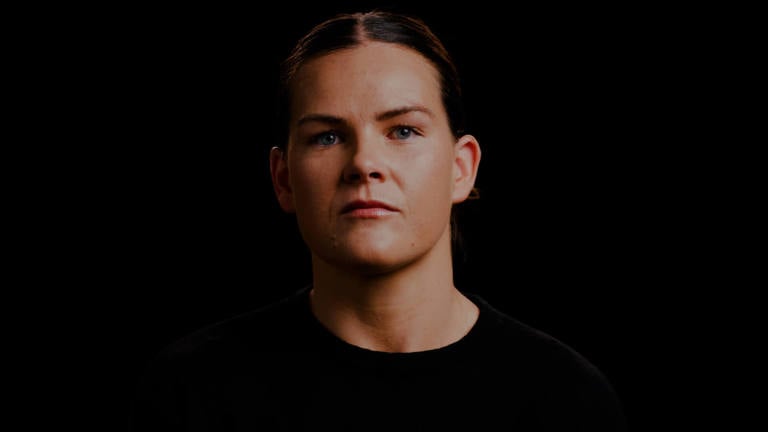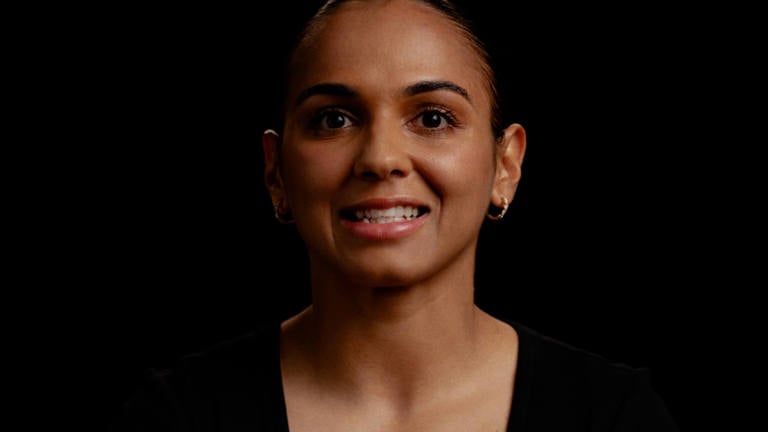At Youi, we take the time to listen. We get to know people and find out what matters to them; what makes them an individual. We do it with our customers and now we’re proud to do the same through our Stories of Change series.
Gerard Sutton and James Graham: ‘Bad Friday’ TV grabs not an accurate picture
In one of the most extraordinary finishes in rugby league history, a controversial penalty against Canterbury-Bankstown Bulldogs captain James Graham cost his team victory against the South Sydney Rabbitohs in the NRL's 2015 traditional Good Friday clash – a fiery rematch between the previous year's grand finalists.
The Bulldogs were in front after Trent Hodkinson slotted a field goal with three minutes remaining. South Sydney’s Adam Reynolds was attempting a 45-metre field goal in the dying minutes to take the game to golden point. However, James Graham crashed into Reynolds’ legs while attempting to block the kick, with referee Gerard Sutton ruling the leg-injuring contact illegal.
Gerard awarded a crucial penalty to the Rabbitohs in a call that ultimately decided the game. With tensions at breaking point, James openly confronted Gerard, who was also rounded on by his Bulldogs teammate David Klemmer, in an extremely heated exchange.
TV footage showed an irate James yelling in Gerard’s face after being called for the penalty that handed the Bunnies the match-winning shot at goal. Visuals also showed a fuming James pointing a bent finger at Gerard, which was interpreted as a threatening gesture.
Projectiles hurled as officials exit
A number of the Canterbury players also unloaded verbal tirades on Gerard, and the match officials were booed off the field after the game. Projectiles were also thrown at them as they exited the stadium, causing them to slip and fall.
Reflecting on the Good Friday game in April 2015 – which went on to notoriously be called the ‘Bad Friday’ game – James Graham says, “It was and always will be referred to as Bad Friday – the clash between the Canterbury Bulldogs and South Sydney Rabbitohs from that year.”
He recalls how the rivalry between the two clubs had been building for a number of years. “There was no love lost between our two teams. And the fact that South Sydney had beaten us in the grand final the previous year only added to that rivalry and the anticipation around this game,” he adds.
Gerard Sutton has similar memories about the build-up to the match. “I knew it was a big game. Obviously, with any grand final rematch, there's always a little bit extra in the mix. And it was a real rivalry between those teams, with the recent history. So, we certainly were expecting a tightly contested game, but I couldn't foresee what unfolded at the end of those 80 minutes,” he explains.
Applying pressure to neutralise field goal
“I was aware that a field goal can be of vital importance,” says James. “I knew part of my role was to apply pressure to the kicker, and for me, it was by any means necessary. I was adamant that, as long as the intent was to charge the ball down, if anything happened in the aftermath, that was an unintended consequence.”
However, James was unfamiliar with the rule that stated that if a player fouls an opponent while they’re attempting a drop goal, a penalty kick will be awarded in front of the goalposts. “I was totally unaware of that rule,” he says. “I assumed that if I was attempting to charge down the ball and you collect the kicker as an unintended consequence, it was play on.
“However, there is more to this story,” he continues. “I realised I'd taken Adam's leg and instantly turned to the bench to wave on some help for him because I could see he was hurt. I believe it was one of the South Sydney trainers who said a few choice words to me. So, that was the start of the confrontation,” he explains.
Not an event seen every week
“The scores were close, and with only a few minutes to go, I knew that the game was in the balance,” says Gerard. “What unfolded at the back end of that game was not an event we see every week,” he confirms. “I think it might've only happened once before in premiership history at first-grade level.
“In training as referees, we are regularly put under physical fatigue and then have questions put to us about the rules. The scenario of a field goal kicker being fouled and resulting in a penalty was one I’d answered a dozen times in the 12 months before that grand final rematch.
“So, when the event unfolded, it was about mentally going back to that and saying, ‘I know what happens here, and this is what we do’,” Gerard adds.
“We know the laws. If we didn’t, it would have been a turning point in a vastly different direction. It would have been career-ending for me. It was a big moment for everyone,” he says. Gerard correctly called the penalty but faced the wrath of James and the Bulldogs players and supporters as a result.
“I was a very emotional player,” admits James. “I played with passion and emotion. The result, the game, football, meant everything to me. So, when I realised that a penalty was awarded against me and the fact it's in front of the sticks means the game is gone, we've lost.”
TV angles misrepresented on-field reality
Both James and Gerard confirm that the TV angles appeared to show the two in a face-to-face confrontation, which wasn’t reality.
“A lot of what unfolded made for great theatre,” says Gerard, “but where James appeared to be remonstrating and worked up was actually well away from me at that point in time. He was probably about 20 metres behind me, so I was oblivious to that.
“It obviously made great footage for the TV cameras, and when you spliced James's reaction with closeups of me, it gave the impression it was all happening in my face, which wasn't really the case,” he elaborates.
James says: “You see me repeatedly say ‘why?’ I couldn’t understand why the penalty was being awarded against us. I always address the referee as ‘sir’ – that’s something that rugby league players learn from a young age. And the bent figure was an extension of the fact that it’s rude to point. So, I didn’t point,” he explains.
“After the game, the NRL got me to go through it and provide a transcript of everything that was said. And as emotional and as invested as James was through the whole thing, he never swore at me once and continued to refer to me as ‘sir’ the whole way,” says Gerard.
Level of respect shown
“When I sat down in the cold light of day and looked at it – while he was clearly disappointed with the decision – there was a level of respect and restraint the whole way through, which the public didn't recognise. It showed that while he was a fierce competitor and thought he was being wronged at that moment, he still retained a level of respect there, which I
thought was the mark of the person.”
“After it was explained to me that I was wrong, there was a lot of self-reflection,” admits James. “It's something I look back on, and I’m pretty ashamed of how I acted. A person is just trying to do their job, and I'm trying to do mine, but I was a catalyst to the exit of the match officials; I played a big part in that.”
Gerard adds: “I think the public perceives there's an adversarial relationship between referees and players and that we are opposed a lot of the time. My experience with NRL players is that there's actually a pretty good level of respect.”
Talking about the common practice now where referees and players spend time together outside of matches, James says, “I think it started to change when the referees would come into our practice sessions, and we'd build rapport.”
Speaking to Gerard and alluding to mutual respect between the two roles, he adds: “When I was at Canterbury and the Dragons, we'd do live scrummaging, which you'd officiate, and then we'd do some conditioning drills. You guys would come in and join in the conditioning drills. You'd train with us, and we'd say, ‘Come on. These guys couldn't...!’ You are training hard as well,” he smiles.



